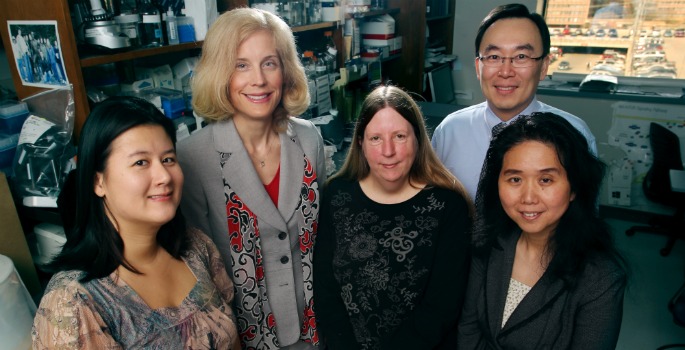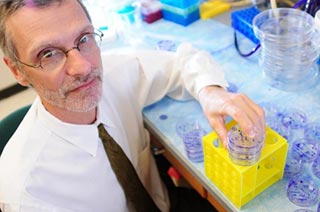Cancer Biology
-

Protecting brainpower during radiation
Blocking a certain protein during radiation to treat brain cancers could protect the brain’s thinking powers. Read MoreJun 29, 2011
-

Gene ‘signature’ may predict cancer outcomes
A gene signature may be useful in predicting outcomes for patients with rhabdomysarcoma, a form of cancer most commonly diagnosed in children. Read MoreMar 25, 2011
-

Protein related to aging holds breast cancer clues
David Gius, M.D., Ph.D., and colleagues are studying an aging-associated protein’s role in the development of breast cancer in older women. (Vanderbilt University/photo by Mary Donaldson) The most common type of breast cancer in older women – estrogen and progesterone receptor (ER/PR) positive breast cancer – has been linked to… Read MoreFeb 1, 2011